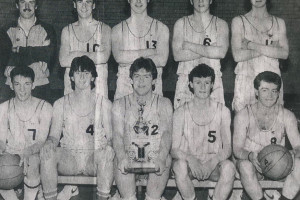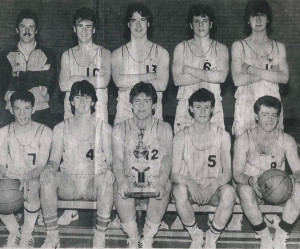You can’t fix what you can’t see – tackling blindspots in sales management
How to fix an underperforming sales team
I used to work with a business man who was as good at coaching as he was at growing a multi-million pound business.
“I really pity the man that doesn’t know he doesn’t know.” He said to me one day, almost 20 years ago.
It took a while to land but he was talking about that thing everyone is afflicted with – a blind spot.
The ‘blind spot’ comes from the Johari Window, a psychological model developed in 1955 by Joseph Luft and Harrington Ingham — the name “Johari,” comes from a blend of their first names.
It was originally created as a framework for understanding and improving interpersonal communication, particularly within group dynamics and team settings.
The model divides self-awareness into four quadrants, each representing a different level of visibility between what we know about ourselves and what others know about us:
-
Open Area – Known to self and others
-
Blind Spot – Unknown to self but visible to others
-
Hidden Area – Known to self but hidden from others
-
Unknown Area – Unknown to both self and other
If you’re of a certain age you’ll be familiar with Donald Rumsfeld and the famous “known / knowns’ speach – there was a bit of the “Johari Window” somewhere in there.
Anyway.
In sales we are surrounded by data, statistics and processes that make it very easy for us to believe that what we are doing is as good it can be – usually it isn’t that good and besides, everything can be improved.
At some point one of these ‘blind spots’ will cripple you, someone within your team or your entire team – its better to try and fix an underperforming sales team before it actually underperforms.
So, I’m going to say stop kidding yourself that you’re THAT good, assume that you’re only a quarter or two away from a mini-crisis and start looking for those blind spots.
1. Heighten your awareness
Make it part of your process to interrogate beyond the data – stop looking at what you can already see and start looking beyond that.
What might other people – both inside and outside the sales environment see that you cannot?
2. Be ok with criticism
Try and encourage people to critique you rather than settle from praise, warranted or otherwise. At least ask for specific feedback…”How did I do?” “What could I improve to make this meeting more effective for you?”
3. Record yourself and others
Then listen back – without judgement – and see what could be improved, changed, deleted. Too much talking and not enough listening? Measure the ratio of you talking to others…that’ll be a good indicator of that. There’s loads of software to help with that.
Listening enough? Cursing at all? Pausing, stuttering & stammering…? Worse? If you’re not looking you’ll definitely not find.
Or as another client said, “You cant see the label from inside the bottle.”

fix an underperforming sales team
4. Hold up the mirror
Or ask someone else to hold it up – a peer, colleague, client, coach and ask a question:
“Do you notice something about how I communicate, sell, or lead that I might not be aware of?”
5. Do a SWOT on your SWOT
Spend a bit of time on your strengths and weaknesses and ask some tough questions of you / your team / colleagues and see exactly how strong your strengths are and how weak your weaknesses are.
Fire out a survey to your customers, lost prospects – ask them to answer some tough questions.
6. Hire a coach
Come on, this is a sales pitch.
Still reading?
There’ll be loads of internal dialogue right now telling you that you / your team are immune from the blind spot.
Cognitive dissonance will do that to you – that bit of awkwardness you’re feeling when your reality isn’t matching your self-image or beliefs.
Maybe something like:
-
believing you’re an empowering coach, when in reality, your team sees it as micro-controlling.
-
thinking you’re a top performer, but the data shows you’re just the loudest, not the best.
-
believing that the sales process is buyer-centric, but you’re losing deals because there’s no listening at all.
If you want to fix an under performing sales team start looking for the unseen. Stop believing the hype. Fine tune your awareness and trust that it’s better to be the person that does know.
Thanks for reading.
Image by dbderuiter from Pixabay






